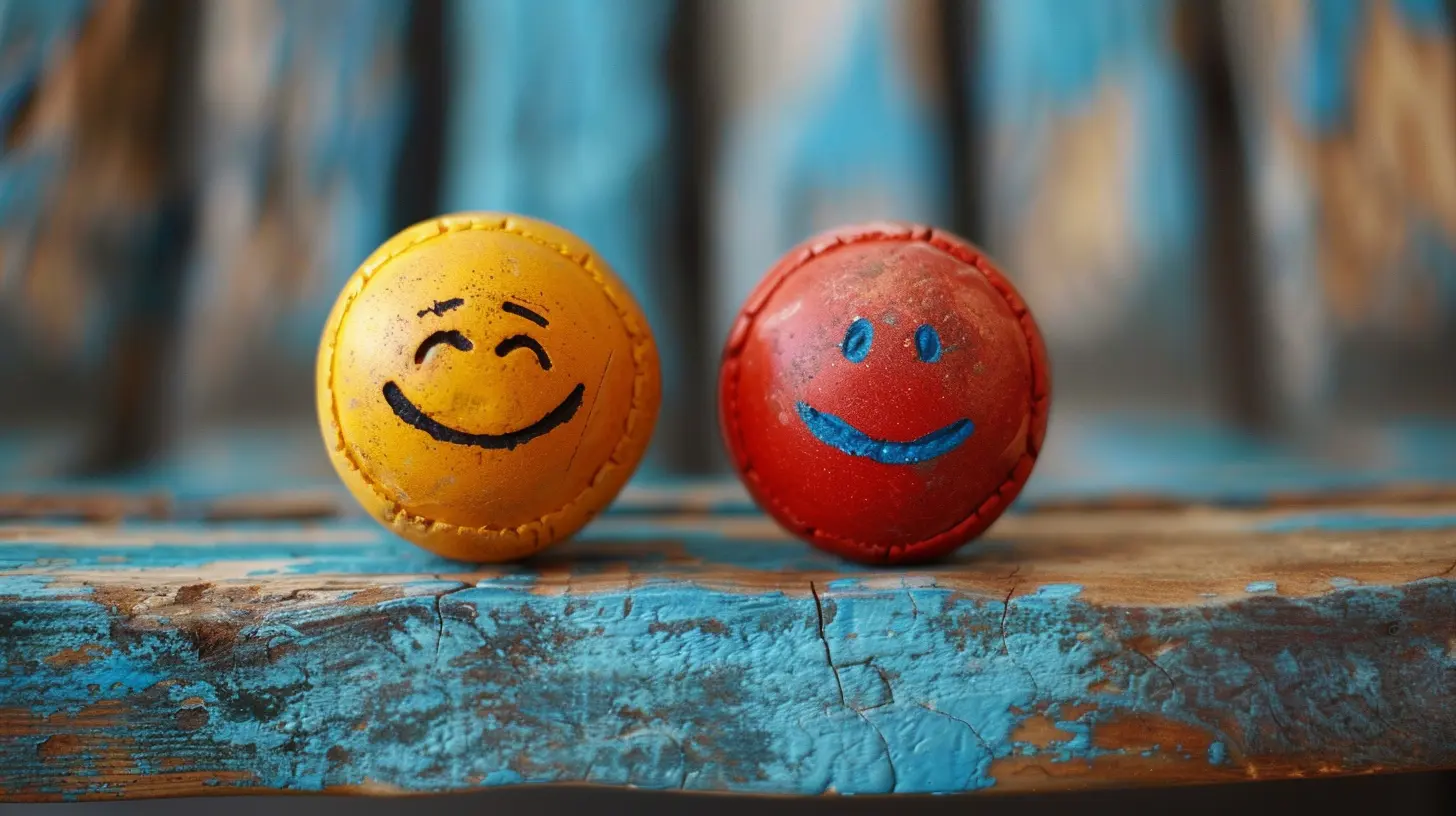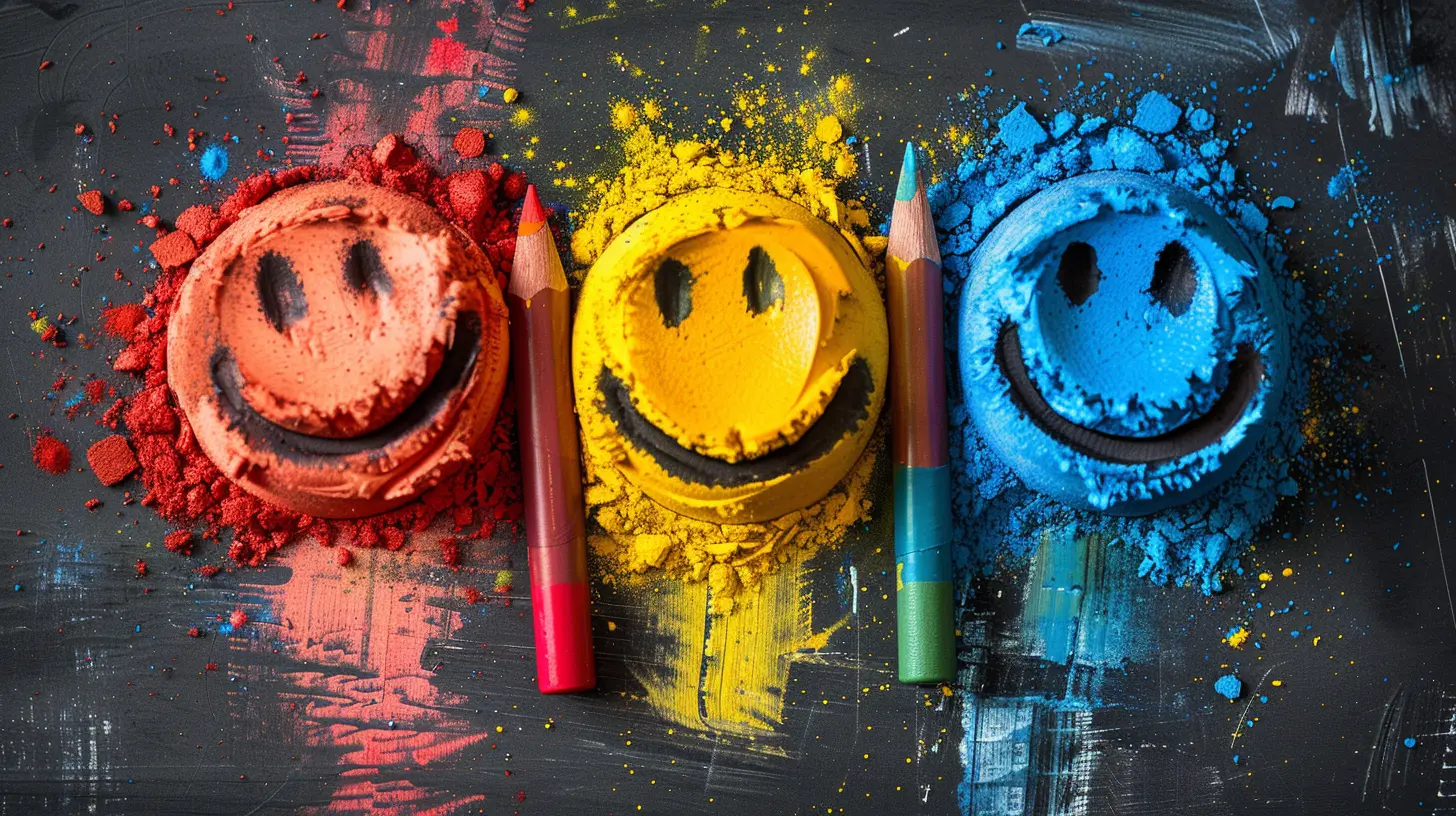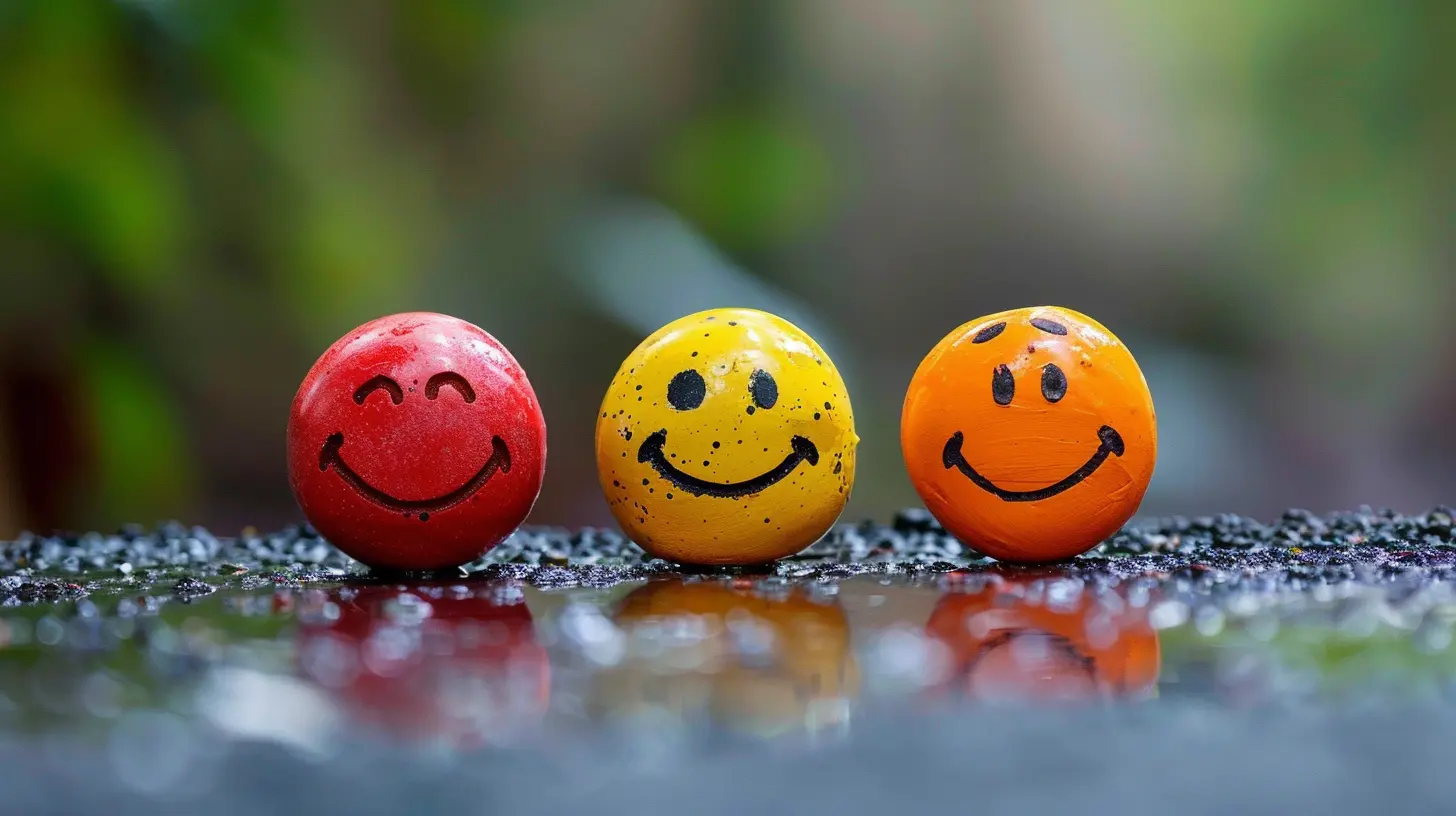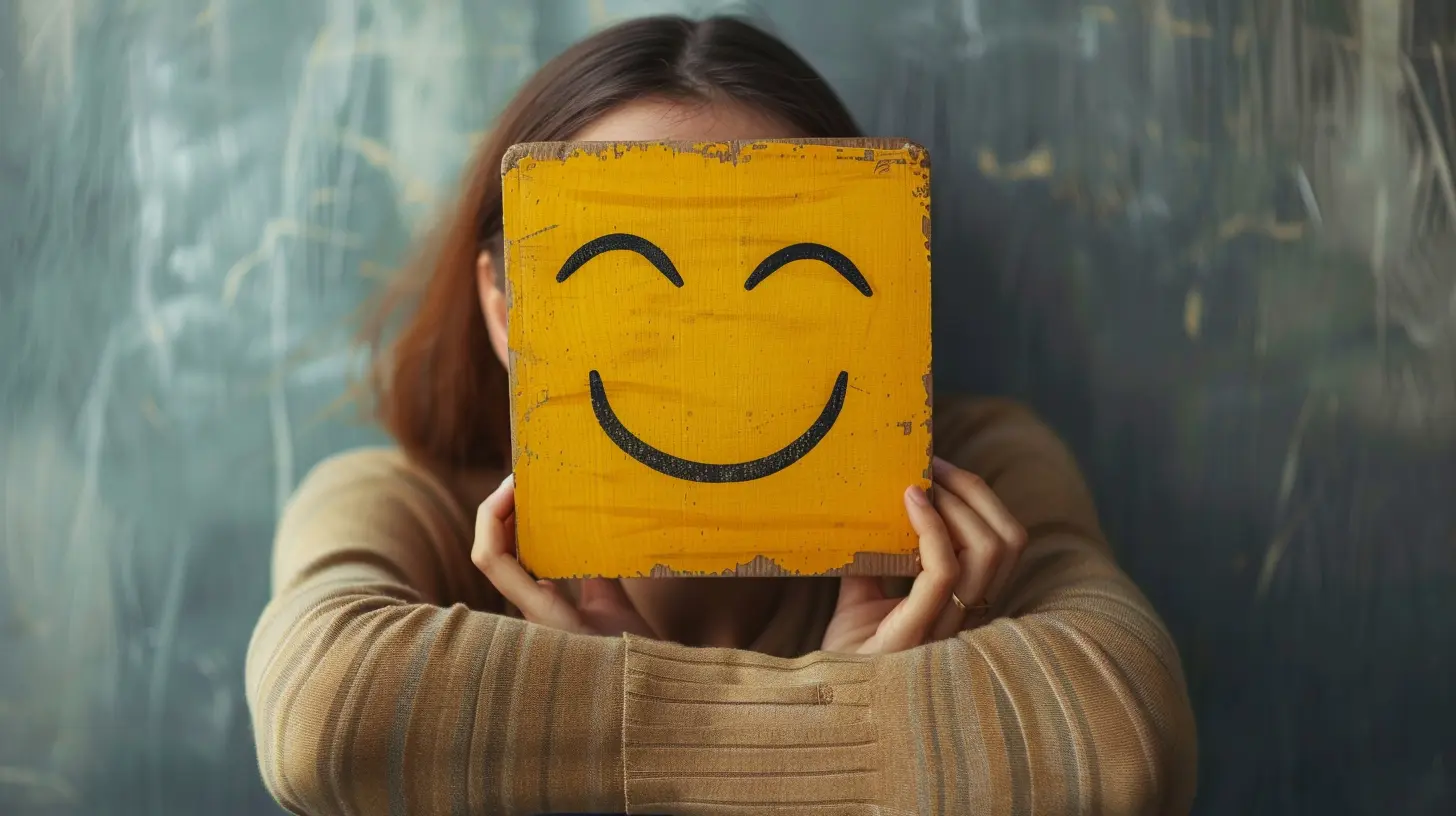The Role of Humor in Emotional Regulation
23 June 2025
Let’s cut to the chase—life is messy. It throws curveballs when you least expect them. One minute you're cruising, the next you're sipping coffee while your brain hosts a full-blown emotional tornado. So, how do we keep it together when everything’s falling apart? Here’s a clever secret weapon: humor.
Yeah, you heard that right. Not therapy (well, that helps too), not a 30-day juice cleanse, but plain ol’ humor. Laughter might not solve your problems, but it sure knows how to take the edge off. And science is backing that up too.
Ready to dive into the fascinating, sometimes hilarious, psychology behind how humor helps us regulate our emotions? Let’s go.
What Is Emotional Regulation Anyway?
Before we can understand humor’s role in it, let's break down emotional regulation. Imagine your emotions are wild horses. Emotional regulation is learning how to ride them without getting bucked off.It’s the ability to manage your emotional reactions, especially in stressful or triggering situations. Whether it's calming down after a fight, not snapping at your boss, or dealing with grief—it’s all about steering your emotional ship through stormy weather.
Now, here's where humor comes into play.
Humor: Not Just For Stand-up Comedy
Humor isn’t just for memes, awkward dad jokes, or sitcoms. Psychologists define it as a coping mechanism, a defense mechanism, and even an emotional superpower.Humor lets us mentally step back from a stressful situation, giving us a fresh perspective. It flips the lens. When you joke about something painful, you tell your brain: “Hey, this isn’t the end of the world.” It diffuses the tension and allows your mind to breathe.
Why Does Humor Work for Emotional Regulation?
So, what’s the deal? Why would cracking a joke ease emotional turmoil? There’s a bunch of interesting reasons why humor is such an effective tool for emotional regulation:1. 🧠 It Activates the Brain’s Feel-Good Chemicals
Laughter triggers the release of dopamine, endorphins, and serotonin—your brain’s happy crew. These little guys lift your mood, reduce stress, and even dull physical pain. It's like your brain’s way of giving you a high-five just for cracking up.2. 😌 It Promotes Reappraisal
This is psychology speak for “looking at something with a new perspective.” Humor helps you reframe negative events. For example, getting drenched by rain on the way to a big interview could either ruin your day—or become the hilarious story you tell to break the ice when you walk in.3. 💪 It Builds Resilience
Emotionally resilient people bounce back faster after tough times. Humor helps you build that bounce-back muscle. Turning hardship into humor means you're choosing how to respond, not just reacting. That’s powerful.4. 🧘♂️ It Reduces Physiological Stress
Your body doesn't just feel stress—it shows it. Tense muscles, high blood pressure, shallow breathing. Laughter literally relaxes your muscles and decreases cortisol (a major stress hormone). It’s like a mini spa treatment, except it’s free and you don’t need a scented candle.
Types of Humor That Help (And Those That Don’t)
Not all humor is created equal. Believe it or not, some types of humor can actually hurt your emotional regulation rather than help it.✅ Adaptive Humor Styles (The Good Kind)
1. Affiliative Humor
This is the kind of humor that brings people closer together—think witty banter, inside jokes with friends, or light-hearted teasing. It boosts relationships and makes stressful situations more bearable.2. Self-Enhancing Humor
Making yourself laugh during tough times is gold. It's the ability to find the funny side even when you're alone and struggling. It's like being your own stand-up comedian in the middle of chaos.❌ Maladaptive Humor Styles (The Not-So-Great Kind)
1. Self-Defeating Humor
Constantly making yourself the butt of the joke to gain approval? That’s a red flag. While it might get laughs, it chips away at your self-esteem.2. Aggressive Humor
If your humor tears down others or relies on sarcasm that stings, it might offer a temporary power trip—but long-term, it’s destructive. People remember how you make them feel.The goal here is to use humor that uplifts, not humor that wounds.
Humor as a Coping Mechanism in Tough Situations
We all know someone who can crack a joke even at a funeral—and somehow it’s not offensive, it’s comforting. That’s not insensitivity; it’s emotional genius.People have used humor as a coping mechanism for centuries. Soldiers during war, doctors in high-stakes environments, trauma survivors—they often rely on humor to make sense of the senseless. It creates psychological distance, a temporary buffer between the person and the pain.
Real-Life Example: Humor During Grief
Ever been to a wake where people are laughing more than crying? That’s healthy. It’s called “humor in mourning,” and it helps regulate overwhelming grief. Sharing funny memories of a loved one doesn't tarnish the seriousness—it humanizes it.Humor vs. Suppression: What’s More Effective?
Okay, let’s address the elephant in the room. Isn’t using humor just a way to hide or suppress emotions?Nope. Not when it's used in a healthy way.
Suppression means pushing emotions down, locking them in the basement. But humor turns those emotions into guests at a dinner party. You acknowledge them, maybe even roast them a little, but you don’t ignore them.
Humor is about transforming emotion—not burying it.
The Role of Humor in Relationships
Want to keep your emotional life balanced? Surround yourself with people who make you laugh.Humor strengthens social bonds. Sharing laughter with others increases emotional intimacy, reduces conflict, and makes even the awkward moments, well, less awkward.
Ever had a fight where someone cracked a hilarious one-liner that made you both laugh and forget what you were arguing about? That’s emotion regulation in action. Humor cools down emotional heat like throwing ice cubes in a boiling pot.
Can You Train Yourself to Use Humor?
Absolutely! Humor isn't just a personality trait—it's a skill. And like any skill, it can be cultivated.Here’s How to Start:
- Watch or read something funny every day: Podcasts, stand-up specials, Twitter threads—whatever makes you laugh.- Keep a humor journal: Jot down funny things that happen or that you think of. You'll start noticing how humor pops up in everyday life.
- Practice reframing situations: Got stuck in traffic? Think of it as an unplanned solo karaoke session. Dropped your lunch? Hey, more room for dessert later.
A Word of Caution: Don’t Use Humor as a Crutch
Yes, humor is amazing, but it’s not a band-aid for deep emotional wounds. If you're using humor to avoid dealing with genuine feelings—especially trauma—it can backfire.You can use humor while still holding space for sadness, anger, or fear. Emotional regulation is about balance, not avoidance.
Wrap-Up: Laughter Is More Than Medicine
So what have we learned? Humor isn’t just a party trick; it’s a psychological Swiss Army knife. It lifts your mood, strengthens your relationships, and helps you ride the emotional rollercoaster of life with a little more grace—and a lot more giggles.You don’t need to be the class clown, and you don’t have to turn every crisis into a comedy sketch. But finding just a little humor, even in the dark, can illuminate your path forward.
So next time life tries to knock you down, don’t just get back up. Laugh while you do it.
all images in this post were generated using AI tools
Category:
Emotional RegulationAuthor:

Gloria McVicar
Discussion
rate this article
2 comments
Vanessa McGrath
This article insightful highlights how humor can effectively enhance emotional regulation, offering valuable strategies for improving mental well-being. Thank you for sharing!
November 27, 2025 at 4:20 AM

Gloria McVicar
Thank you for your kind words! I'm glad you found the article insightful and valuable.
Stella Curry
Laughter: the heart’s gentle balm.
July 8, 2025 at 4:06 AM

Gloria McVicar
Thank you! Indeed, laughter can soothe and heal, making it a powerful tool for emotional regulation.


